Tax Time Tango: Turning Dread into Dollars with Smart Planning
Tax Time Tango: Turning Dread into Dollars with Smart Planning
Let's face it: for many small business owners, tax season feels less like a smooth dance and more like a clumsy stumble through a minefield. You're juggling invoices, expenses, and the ever-present question: "Am I doing this right?" That's where savvy small business tax planning services come into play. It's not just about filing on time; it's about strategically positioning your business for financial success.
We're not just talking about saving a few bucks here and there. We're talking about building a solid financial foundation that lets you grow your business and achieve your dreams. Let's dig into how you can make tax planning your secret weapon.
The Sneaky Costs of Reactive Tax Strategies
Many small businesses take a "wait and see" tax approach. They scramble to gather documents at the last minute and hope for the best. But this reactive strategy has hidden costs.
- Missed Opportunities for Savings: Without proactive planning, you're likely leaving deductions and credits on the table.
- Cash Flow Chaos: Unexpected tax bills can wreak havoc on your cash flow, hindering your ability to invest in growth.
- Increased Stress and Anxiety: The uncertainty of last-minute tax preparation can affect your mental well-being.
- Higher Risk of Audits: Hasty preparation increases the likelihood of errors, which can trigger an audit.

The Power of Proactive Small Business Tax Planning Services
Thoughtful tax planning isn't a one-time event; it's an ongoing process. Here's how it can benefit your business:
- Predictable Tax Liabilities: By planning, you can anticipate your tax obligations and avoid surprises.
- Optimized Cash Flow: Strategic planning allows you to manage your cash flow effectively, ensuring you have the funds you need to operate and grow.
- Reduced Tax Burden: Tax professionals can help you identify and take advantage of all eligible deductions and credits.
- Minimized Audit Risk: Accurate and timely preparation reduces the chances of an audit.
- Peace of Mind: Knowing your taxes are handled correctly lets you focus on running your business.
Key Elements of Effective Tax Planning
What does effective tax planning look like in practice? Here are some key elements:
- Regular Review of Financial Records: Maintaining accurate and up-to-date records is essential for effective tax planning.
- Strategic Timing of Income and Expenses: You can minimize your tax liability by carefully timing your income and expenses.
- Utilization of Tax-Advantaged Accounts: Contributing to retirement and other tax-advantaged accounts can significantly reduce your tax burden.
- Staying Informed About Tax Law Changes: Tax laws are constantly evolving. Staying informed about these changes is crucial for effective planning.
- Business Structure Analysis: Analyzing your business structure to ensure it is advantageous.
Choosing the Right Small Business Tax Planning Services
Not all tax planning services are created equal. Here's what to look for when choosing a partner:
- Industry Expertise: Look for professionals with experience in your specific industry.
- Comprehensive Services: Do they offer a full range of tax planning services, including bookkeeping, payroll, and business formation?
- Personalized Approach: Do they take the time to understand your unique business needs and goals?
- Clear Communication: Do they explain complex tax concepts in a way you understand?
- Proactive Advice: Do they provide proactive advice and guidance throughout the year?
- Reasonable and Transparent Pricing: Ensure you understand all the fees before hiring a professional.
The Human Touch: Building a Relationship
Tax planning isn't just about numbers; it's about building a relationship with a trusted advisor. A good tax professional will:
- Listen to your concerns and answer your questions.
- Provide personalized advice tailored to your specific situation.
- Be proactive in identifying opportunities to save you money.
- Be a trusted partner in your business's financial success.
Beyond the Numbers: The Emotional Impact
Let's be honest: taxes can be stressful. The uncertainty of not knowing if you're doing things right can weigh heavily on your mind. That's why having a trusted tax professional in your corner can make a difference. It's not just about saving money; it's about reducing stress and gaining peace of mind. If you need Tax seizure help in Tampa and Oldsmar we are here for you.
The Local Advantage
Local firms like ours understand the unique challenges and opportunities facing small businesses in our community. We're committed to building long-term relationships with our clients and providing personalized service that exceeds their expectations.
In the end, effective small business tax planning services are an investment in your business's future. It's about taking control of your finances and building a solid foundation for growth and success.
Aside from small business tax planning service, we also offer Tax seizure legal advice in Tampa and Oldsmar.





